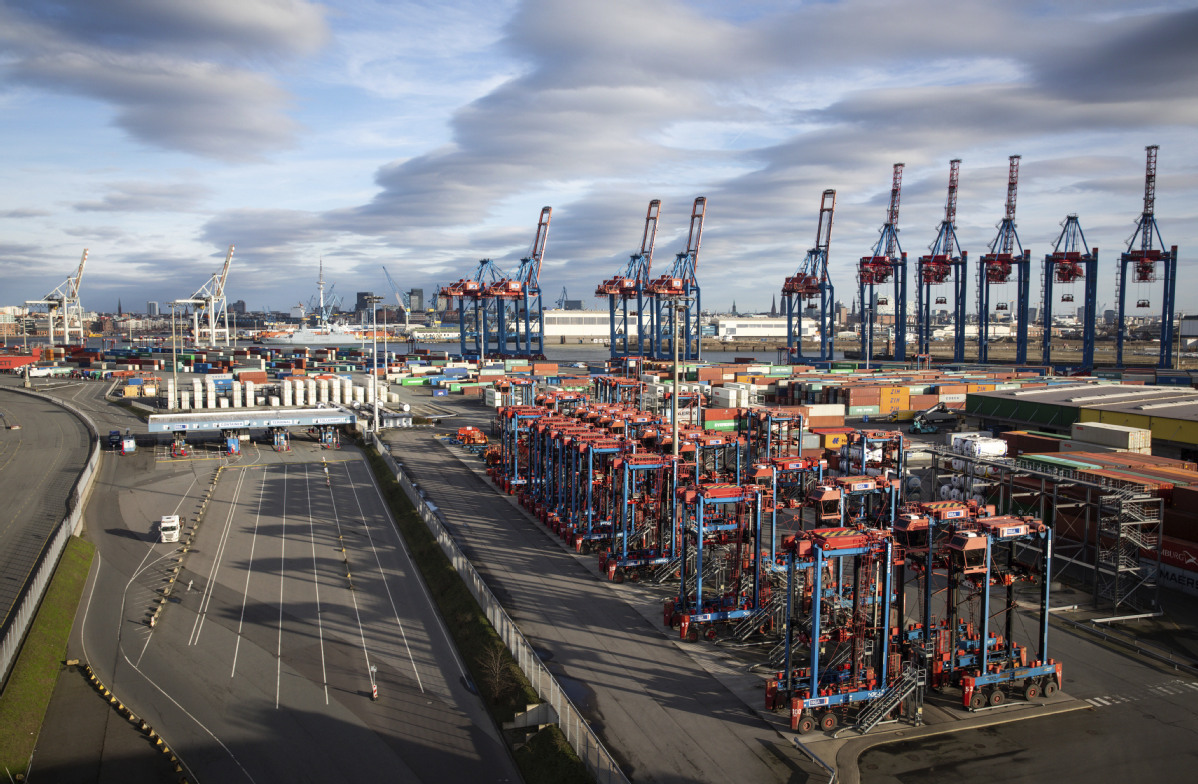
Equity in Hamburg terminal to boost supply chains, secure jobs, create value
The German government's approval for Chinese investment leading to a 24.9 percent stake in HHLA Container Terminal Tollerort GmbH (CTT) will deepen bilateral economic and trade cooperation, German port operator HHLA and analysts said on Thursday.
The German cabinet gave the green light on Wednesday to an investment deal made by Hong Kong-listed COSCO Shipping Ports Ltd for the stake — it is smaller than the initially planned 35 percent stake — in CTT, one of three terminals owned by Hamburger Hafen und Logistik AG or HHLA in Hamburg.
COSCO Shipping Ports Ltd is a subsidiary of Shanghai-headquartered China COSCO Shipping Corp Ltd, the country's largest shipping and port management company by sales revenue.
"We appreciate that a solution has been found in objective and constructive talks with the federal government," said Angela Titzrath, chairwoman of HHLA's executive board.
"We want to continue to successfully develop the business relationship with China COSCO Shipping that has existed for 40 years," she said. "Open and free world trade is the basis for a city like Hamburg. A company like HHLA must and wants to maintain good relations with its Chinese trading partners."
"The cooperation between HHLA and China COSCO Shipping creates no one-sided dependencies. Quite the opposite: it strengthens supply chains, secures jobs and promotes value creation in Germany."
Germany's Greens Party and the Free Democrats, partners in the three-way coalition government, had voiced concerns about selling what they called critical infrastructure facility to a Chinese company. Robert Habeck, Germany's minister for economic affairs and climate action, who is a member of the Greens Party, had opposed the deal initially.
But German Chancellor Olaf Scholz, a Social Democrat and former mayor of Hamburg, supported the deal and dismissed the criticism.
A federal government spokeswoman said on Wednesday that the chancellor had made it clear that the bid was not about selling the port, but "merely" a stake in a single terminal.
Such a result shows Scholz's pragmatic stance in developing relations with China. It will inject stability into bilateral ties, said Wu Huiping, deputy director at the German Studies Center at Shanghai-based Tongji University.
Hans-Jorg Heims, a spokesman for HHLA, said earlier that the issue had been unduly politicized. He argued that without Chinese investment, Hamburg will be at a disadvantage vis-a-vis other European competitor cities such as Rotterdam and Antwerp, where China COSCO Shipping has stakes in key local infrastructure.
HHLA and China COSCO Shipping signed an agreement in September last year. The Chinese company was to acquire a minority share of 35 percent in CTT. The review process by the German government dragged on until well into this year. In August, HHLA and China COSCO Shipping agreed to an extension of the deadline until Oct 31 in order to bring the process to a successful conclusion.
Cooperation between China and Germany is mutually beneficial, China's Ministry of Foreign Affairs said on Wednesday in response to this deal.
"It is hoped that relevant parties will view China-Germany pragmatic cooperation rationally," Wang Wenbin, a ministry spokesman, said at a regular news conference.
Thanks to their complementary trade structure, China and Germany saw their total trade value rise by 2 percent year-on-year to 1.14 trillion yuan ($158 billion) in the first three quarters of this year, data from the General Administration of Customs showed.
Dong Liwan, a professor of shipping and port services at Shanghai Maritime University, said as one of the most important trade hubs connecting Europe with China, the Port of Hamburg boasts great geographical advantages and impressive distribution facilities. It is also a key node of the China-Europe Railway Express freight train service.
The German port's well-connected railroad networks and supporting businesses, such as shipping services, logistics firms, warehouses and freight forwarders, will help secure and enhance CTT's long-term planning, cargo-handling capacity, job creation and more integrated logistics services. They will also support the growth of China-Germany trade in the coming years, he said.
